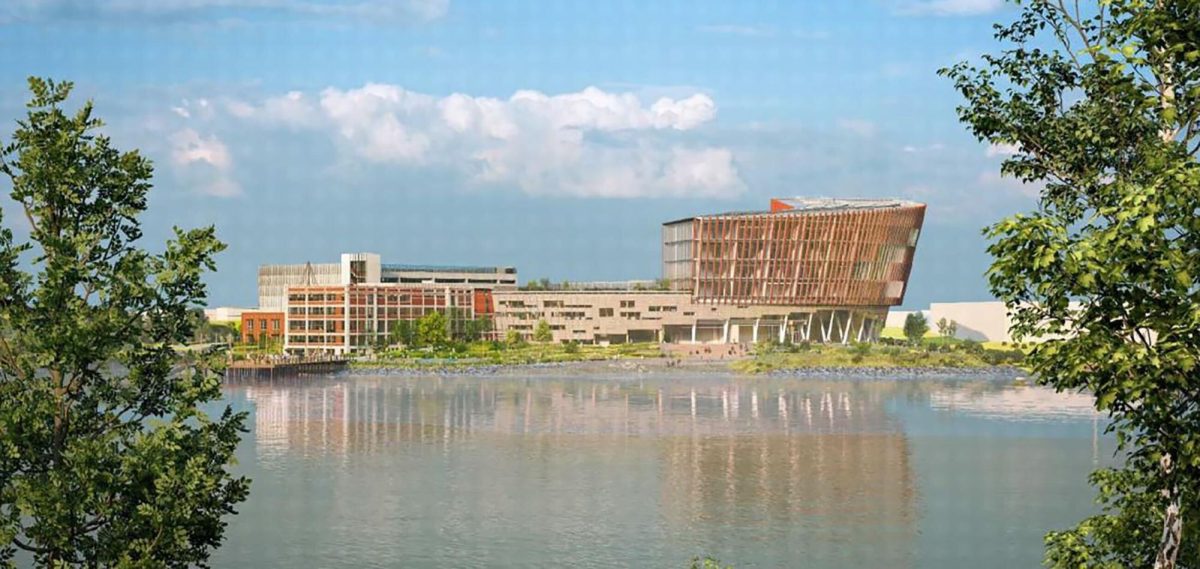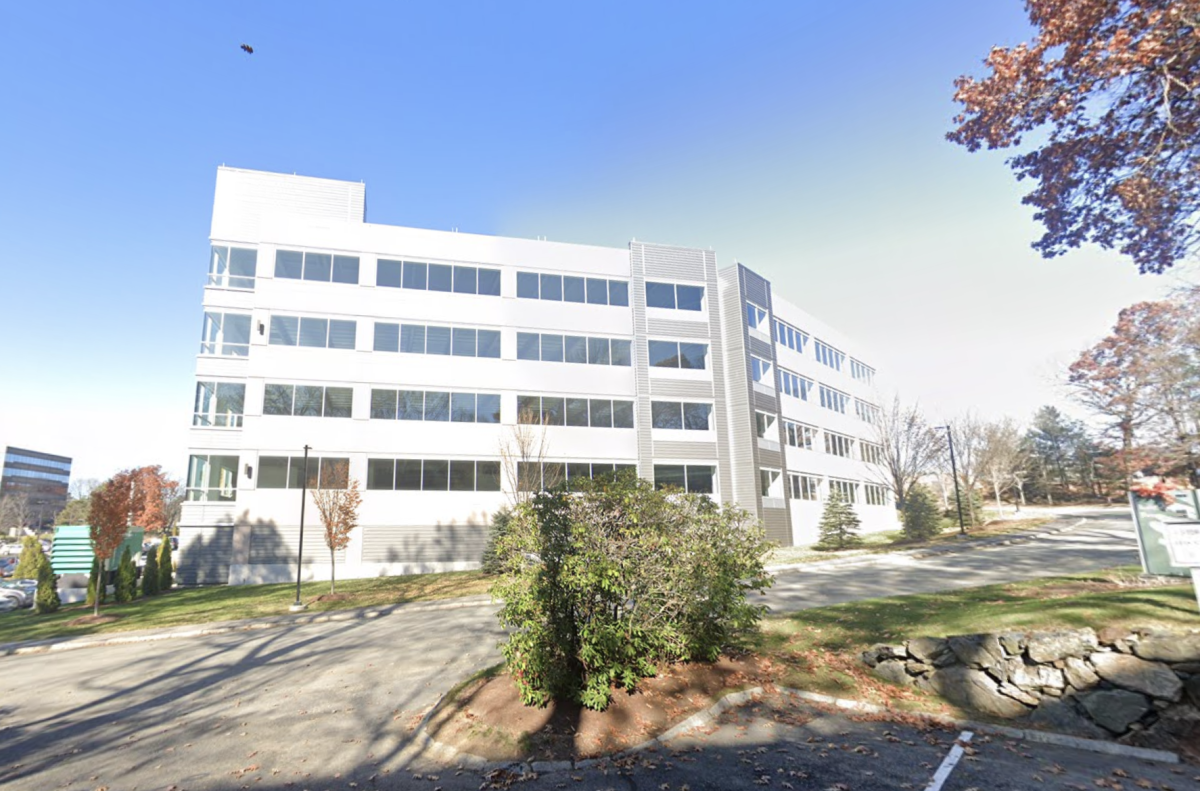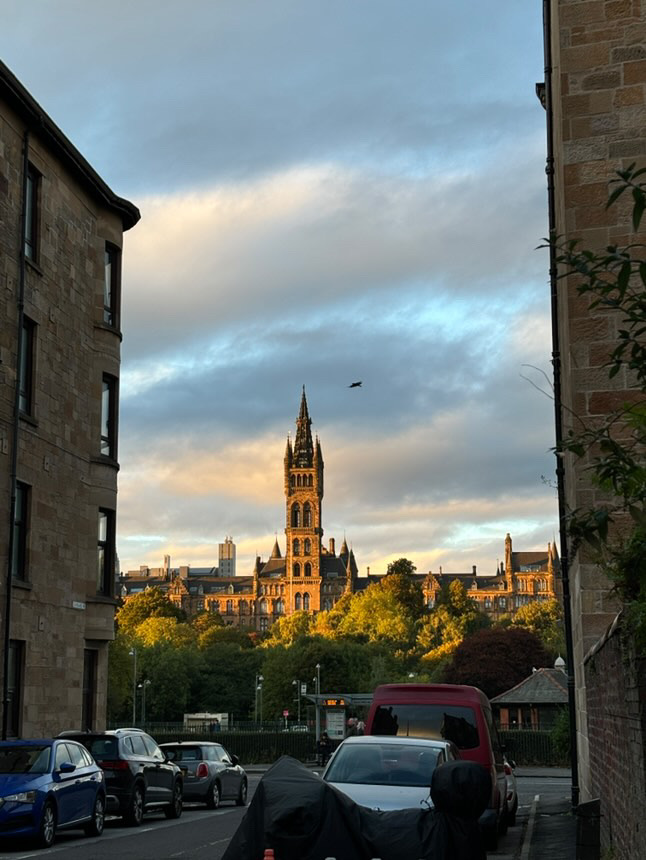For Northeastern, Beantown just keeps on growing. This time — to a former baked beans factory.
The Portland Planning Board approved June 11 the university’s plan to expand its Maine-based graduate campus and research facility, the Roux Institute, into the old B&M Baked Beans factory in East Deering, Portland, which stood for more than 150 years and was sold to Northeastern in 2021. The building operated as a beans factory until it was sold to Northeastern and has been vacant since then, according to documents from the Portland Planning Board.
The former factory is located at 1 Beanpot Circle, adding another layer of relevancy to Northeastern.
The Roux Institute was founded in 2020 following entrepreneur David Roux and his wife’s $100 million donation to launch the school. The institute received a second $100 million donation from the Portland-based Harold Alfond Foundation in 2021.
The institute is home to graduate student programs focused on technology and life sciences. The new campus is expected to host around 3,000 students and is set to open in 2027.
The 1.15 million-square-foot property will house classrooms, office and research space, a restaurant, a hotel and a daycare facility, as well as a large parking lot, according to documents from the Portland Planning Board. Demolition of the existing property began in the summer of 2023, according to local reports.
The current Roux Institute campus is located at 100 Fore St. in Portland, a building that the university subleases from WEX Inc. and is an 8-minute drive from the factory site. New construction would add close to 480,000 square feet in floor area to the former bean factory, according to documents.
“We’re very excited that the plan for our new campus has reached another milestone,” Northeastern’s Vice President for Communications Renata Nyul said in a statement. “We want to thank the planning board and the community for their support. We look forward to sharing more details in the coming months.”
Locals have mixed feelings about the project, with some residents expressing appreciation for the opportunities the development could bring, while others are concerned about possible traffic congestion in the area.
“Entrepreneurs and academics, tech experts and scientists will work side by side with graduate students and professionals on innovations that benefit us all,” wrote Benjamin Dudley, a former Maine state representative in a public comment of support for the plan. “As the host city, Portland will gain exciting new economic activity, creating opportunities for workers at all levels. This is sustainable development at its finest.”
Elyse Doyle, a Portland resident who teaches at the Roux Institute, said she has seen firsthand the “positive impact this Institute has had for Maine.”
“The applied programs offered through the Roux Institute are changing the lives of Mainers across the entire state. The Roux Institute is the only Northeastern campus that offers ‘hybrid’ courses (in-person and online) so individuals in rural areas of Maine can also take advantage of this excellent opportunity to change their careers and lives,” Doyle wrote in a public comment.
Others raised concerns to the board about potential traffic and general congestion caused by the expected influx of students and faculty.
Sherwood Street, a small, single-lane residential street, is the only way to access the new building, and residents are concerned about the number of cars that will travel through the road once the campus opens.
“Upon learning of the scope of the project- it appears that there is a lot more that will be going on this site than the Roux Institute, I became a bit concerned over the potential for increased traffic and congestion. As I am sure you are aware, the Veranda Street, Sherwood Street and Washington Avenue area is already difficult to navigate, especially during the morning and evening hours,” Todd Zukowki wrote in a public comment.
Representatives for the Roux Institute have said they are taking measures to reduce single-vehicle traffic on Sherwood Street. According to the planning document, the university will establish a metro service to campus and cover the cost for students, faculty and staff.
There will also be a restructuring of Sherwood Street to improve connectivity with the installation of a sidewalk, “shared-use path connections” and constrained on-site parking to prioritize alternative transportation methods, according to the planning document.
Traffic engineers hired to consult on the project said the measures the school is taking — such as building a parking garage — will sufficiently mitigate traffic in the area, according to documents outlining the project.
An article by the university-run publication Northeastern Global News said the school’s plans were updated after “previous public feedback” and that the final proposal “drew no objections from Portland residents.”
“The drawings for the new campus show it to be a vibrant addition to Portland’s waterfront, combining the new with the old in a way that honors tradition but sets its sights on the future,” wrote Sarah Maloney, a Portland resident and parent of a Roux Institute student, in a public comment. “Not only will the campus provide a rich community experience for its students, the footprint of the new Roux Institute will bring a beautiful, sustainable and usable piece of property to the Portland waterfront.”











